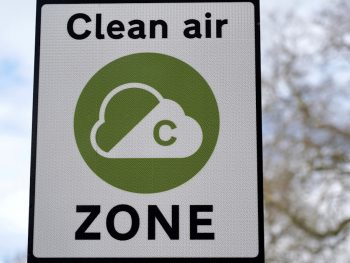Clean Air Zone clarity needed on mapping, fines and appeal process, says DMN
More clarity and information on Clean Air, Congestion Charge and Ultra Low Emission Zones is needed to eliminate logistical and financial problems for vehicle delivery services and the wider fleet sector.

Clean Air Zones areas are unavoidable for logistics firms and many fleet operators, according to DMN
The call comes from DMN Logistics, which says that despite freedom of requests for clarity on exact postcodes, or ways of programmatically accessing zone data from the zone operators, information has not been forthcoming.
CAZ and Congestion Charge zones are currently in operation in London, Bath, Birmingham, Oxford, Portsmouth and York with further Ultra Low Emission Zones coming into effect in 2022 in Bristol, Manchester, Bradford, Newcastle and Sheffield.
Logistically, these areas are unavoidable, and charges incurred daily can become a cost burden for a business.
But DMN Logistics also said that the lack of data on exact zone mappings makes journey planning more onerous, confusing and expensive, with many drivers facing fines they feel they have wrongly incurred.
Nick Chadaway, managing director, explained: “CAZs are clearly necessary to help lower carbon emissions in these areas, but they can be a financial burden and logistical nightmare when you have no fixed fleet or pre-pay account. With so little information available in an automated fashion to the zones’ boundaries and charging structure, the cost is not only that of the zone charges but an increase in staffing costs to constantly check and manage all of the different vehicles and journeys that may potentially traverse any of these zones.
“Within the logistics sector, it is common to be provided with a destination postcode that is not exact and, in these instances, delivery drivers may unknowingly take a road that is within the CAZ and incur a fine.
“Fines plus daily charges can have a damaging effect on the logistics sector as well as businesses that are still recovering post-covid.”
This is not a new problem either – the BVRLA warned four years ago that many fleets were unaware of CAZs and that there needed to be more publicity of the impact they could have for fleets, including common standards between cities and ‘mobility credits’ offering drivers scrapping older cars the ability to use vehicle sharing or public transport via an app.
DMN has highlighted that businesses can use the UK government website to determine if their drivers need to enter a CAZ but it says that when you are delivering hundreds of vehicles each day through numerous zones, without an easy automated way to keep on top of this then lots of additional work is being created for all parties.
If drivers unknowingly incur a fine, they can contest it, but it may not be successful.
The Traffic Penalty Tribunal states: “If you receive a Penalty Charge Notice (PCN) you must first challenge it with the authority that issued it. If this is unsuccessful, you will receive a Notice of Rejection (NoR) of Representations letter and then can begin an appeal process.”












